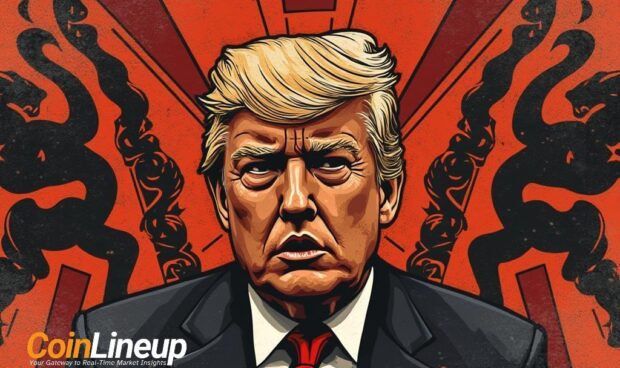
- China and US extend tariff truce post-Stockholm talks.
- No new tariff impositions announced.
- Economic tensions eased with truce extension.

The recent China-US trade talks in Stockholm concluded with an extended tariff truce, averting new duties. No direct impacts on cryptocurrencies or immediate regulatory changes have been reported, as the discussions focused on macroeconomic issues.
The China-US economic and trade discussions concluded in Stockholm, Sweden, on July 29, 2025, with a mutual decision to extend their existing tariff suspension agreement.
This development holds significance as it maintains stability in the global trade landscape, averting potential disruptions.
Core Discussions
Core findings reveal that the China-US dialogues in Stockholm addressed the imminent need to maintain economic equilibrium by extending the existing tariff truce. Prior rounds in Geneva and London did not conclude with this critical update.
“Trade stability achieved as China and US maintain tariff agreements,” commented an anonymous trade expert.
Delegates representing both nations included trade officials, yet no cryptocurrency representatives participated, indicating these talks were focused on broader economic matters. The extended truce prevents further tariff escalations for now, critical for ongoing economic stability.
Financially, the decision provides relief to several industries potentially affected by trade penalties. This strategic move aims to minimize disruption in global supply chains. There were no immediate market shifts or announcements of changes in crypto-related institutional funding following these talks.
Crypto markets remained largely untouched by this event. The dialogue primarily addressed macroeconomic themes, leaving the digital asset industry peripheral. Historical trends suggest broader market sentiments generally affect crypto during tense China-US discussions rather than specific policy enforcement.
Implications for Business
The Stockholm outcome offers some security to businesses concerned with tariff impacts. Maintaining economic flow emphasizes the importance of mutual cooperation. Broader implications could resurface as traders and industries assess the durability of such accords. Potential financial outcomes may not immediately affect cryptocurrencies but could indirectly influence associated technologies and policy perspectives.












Be the first to leave a comment